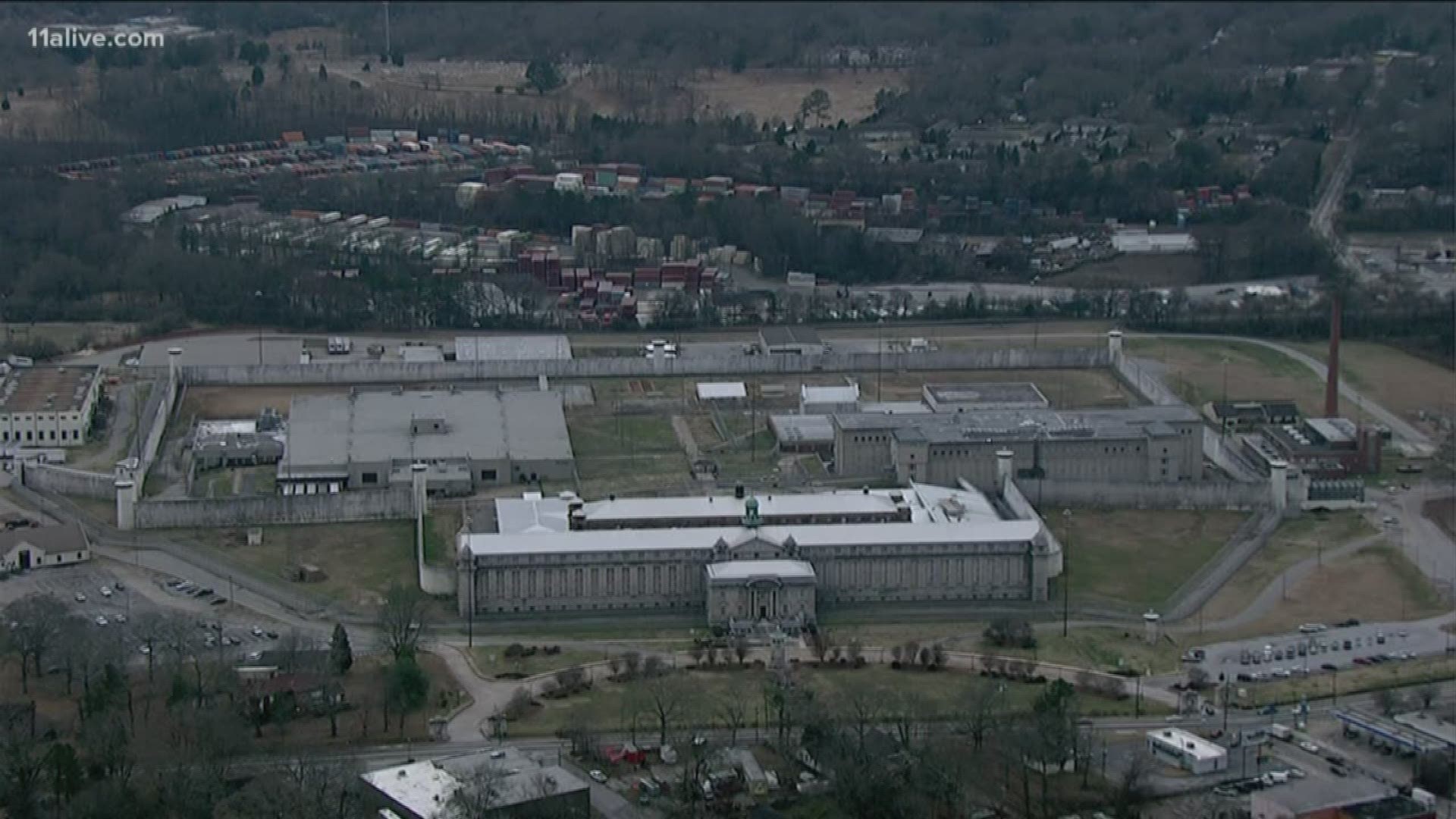ATLANTA — Water at the Federal Penitentiary in Atlanta is unsafe to drink, according to officials.
The penitentiary said it first became aware of water issues in November 2018, after complaints of possible sediments in the drinking water. At that point, federal officials brought in an outside consultant to test the water.
According to the Federal Bureau of Prisons, the consultant took seven samples, which showed elevated levels of arsenic in the water. As a result, the federal facility ordered a more widespread testing of water sources the following month - including from two points in which water entered the penitentiary property.
Fourteen more tests were completed on Jan. 2, but results were delayed because of the government shutdown. The bureau finally received those results on Jan. 29, confirming some samples showed elevated levels of arsenic.
The facility reports samples from some water sources at the facility fell within the "safe" limits for the presence of arsenic. It did not specify, though, how many water sources showed elevated arsenic levels, or to what level. However, the penitentiary said all of the samples taken from sources on the facility grounds contained 17 parts per billion (ppb) of arsenic or less. EPA guidelines set the maximum limit for the presence of arsenic at 10 ppb.
Once the results were reviewed, the penitentiary said it warned all staff and inmates not to drink the water and handed out bottled water throughout the facility. It also brought in additional gallons of water to use for cooking meals. Showers and laundry, officials said, are not affected.
The penitentiary also notified Atlanta's Department of Watershed Management - who supplies water to the facility - of the elevated levels of arsenic. The department collected their own water samples from the city's distribution system Feb. 4. Those results came back Feb. 7, and showed no traces of arsenic in the city's system.
The department described the issue as a "facility-related" one.
"At this time, there is no evidence that the contamination is coming from the City of Atlanta Water System," the agency said in a statement. "The required annual samples for the City’s drinking water system have shown no detection of arsenic."
Meanwhile, the Bureau of Prisons, which oversees operation of the federal facility, said it is also working to find the source of the arsenic and solidify a long-term solution.
Editor's note: This story was updated to include new details on the results of the Department of Watershed Management's testing.

